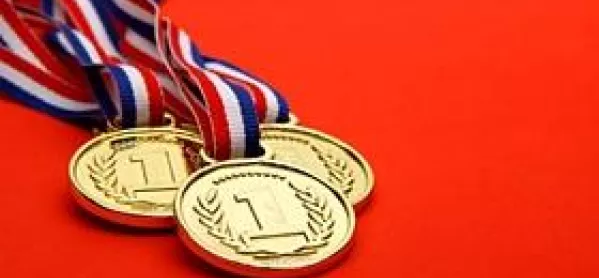And the gold for sporting achievement goes to...

It produced 25 of the athletes in Britain’s greatest Olympic team and four of the Paralympians. But it is not a luxurious private school, it is a general FE college in Leicestershire.
Despite educating nearly three times the number of Olympians as Millfield School, its nearest rival, Loughborough College is not resting on its laurels. Next week, it will open its unique Elite Athlete Performance Centre, which will offer residential education for up to 100 students aged between 16 and 18, tailored to fit around the demands of elite sports training.
The opening will mark the culmination of more than a decade’s work for Jim Mutton, the college’s principal, who retires this month. He first had the idea for the pound;4 million centre after France’s victory at the 1998 Fifa World Cup. This was widely attributed to the influence of elite academies such as the one in Clairefontaine that produced Thierry Henry.
“I seriously wondered why we didn’t have the same thing for young people in this country,” Mr Mutton said. “Steve Cram had been calling out for something similar, and you’d hear about Kenyan youngsters who went to running camps at 12 or 13.”
Loughborough already had some big sporting advantages. The town is filled with top coaches, as national sport associations have moved to be close to the experts at Loughborough University. This in turn has helped the college to attract elite athletes such as swimmer Liam Tancock, many of the Team GB women’s football side, hockey bronze medallist Nicola White and Robbie Grabarz, who took bronze in the high jump. These current and former students have studied a range of courses at the college, from A levels to degrees in sports science.
For the past four years, Loughborough has employed Chris McGeorge as its elite athlete education and welfare officer, and he will oversee the new centre. Its first students will be the rising stars identified by Volleyball England, and the college hopes that other sporting bodies will follow suit.
A former runner who won a gold medal in the 1,500m event at the World University Games, Mr McGeorge moved into teaching and now uses his experience at boarding schools to help teenagers adjust to a newly independent life in halls of residence.
“We get two types: low-maintenance and high-maintenance,” Mr McGeorge said. “There are those who are already equipped with the skills of managing their time, balancing work and training. And there are high- maintenance athletes, who have probably come from a school system or coaching system that was very rigid and they didn’t have to think much for themselves.”
One of the first things the students are taught is how to cook healthy food for themselves, with all of them completing a food hygiene course. It is a lesson British Cycling might want to learn: young Olympic cyclist Laura Trott once almost burned down her flat trying to bake a potato.
Students also have to balance intense training schedules with their work. The volleyball players, for instance, start their morning training session at 7.30am and have more training from 5pm to 7pm. In between, they study.
The college’s investment in online learning has proved invaluable for students who have to travel to training camps abroad or for competitions. Some Olympic skiers spend much of the year in Austria or Australia but can continue their studies. Courses can also be extended to accommodate training.
Mr Mutton acknowledged that state schools do need some extra help with sports provision. The college, for example, sends its sports apprentices to primary schools to help staff develop expertise in PE teaching. It also runs a programme that has trained thousands of young volunteers in physical activity and health.
But he said that much of the concern over private schools’ dominance of sport was unwarranted, and that modern coaching and scouting demanded a wide pool of talent. “Unless the private sector gives a huge number of scholarships out to these kids, there will be a growing number of athletes from state education,” he said.
LOUGHBOROUGH STARS
Nicola White gained a BSc in sports science from Loughborough College and a bronze medal in hockey at the 2012 Olympic Games.
Robbie Grabarz (pictured) has a foundation degree in health and fitness management and a bronze medal in the high jump.
Daniel Fogg has a BSc in applied sports science and took fifth place in the 10km swimming marathon.
Liam Tancock has a BSc in sports science and ended in fifth place in the 100m backstroke.
Steph Houghton has a BSc in applied sports science and scored a winning goal in an Olympic football match against Brazil.
Keep reading for just £1 per month
You've reached your limit of free articles this month. Subscribe for £1 per month for three months and get:
- Unlimited access to all Tes magazine content
- Exclusive subscriber-only stories
- Award-winning email newsletters


